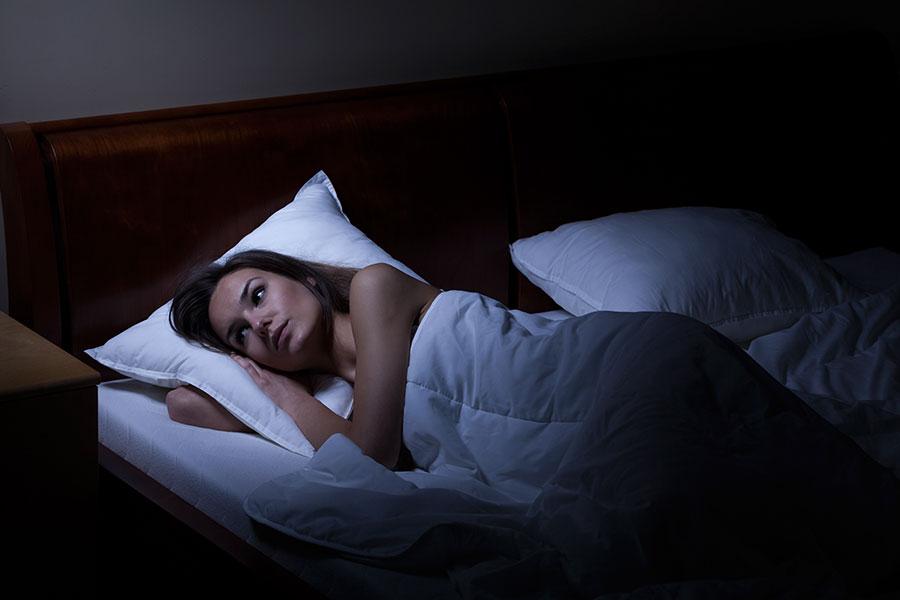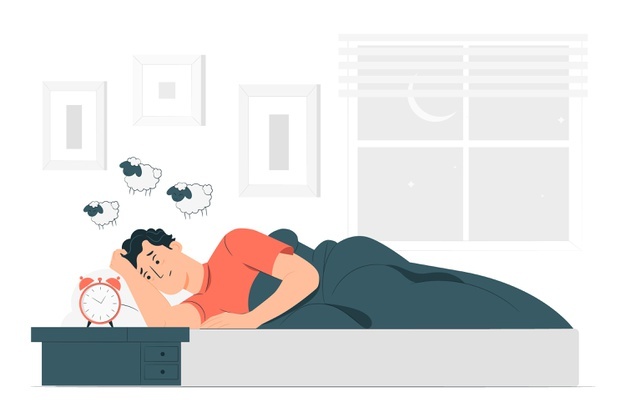OCD and insomnia are two very common disorders that can often co-occur. If you suffer from both OCD and insomnia, you may find that your symptoms worsen each other. However, there are treatments available that can help you manage both disorders simultaneously. In this article, we will learn the relationship between them and the treatment of these disorders.
Contents
What is OCD?
 Obsessive-compulsive disorder, or OCD, is a type of anxiety disorder that causes people to have unwanted and intrusive thoughts (obsessions) that they try to manage by performing certain actions (compulsions). People with OCD often feel that they have to perform their compulsions in a certain way or else something bad will happen. This can lead to significant distress and disruption in their lives.
Obsessive-compulsive disorder, or OCD, is a type of anxiety disorder that causes people to have unwanted and intrusive thoughts (obsessions) that they try to manage by performing certain actions (compulsions). People with OCD often feel that they have to perform their compulsions in a certain way or else something bad will happen. This can lead to significant distress and disruption in their lives.
What is Insomnia?
 Insomnia is a sleep disorder that can make it difficult to fall asleep, stay asleep, or both. People with insomnia often feel tired during the day and may have trouble concentrating. There are many different causes of insomnia, including stress, anxiety, depression, medical conditions, and certain medications. Insomnia can be short-term (acute) or long-term (chronic). Acute insomnia lasts for a few days or weeks and is usually caused by something stressful happening in your life, such as a job loss or a death in the family. Chronic insomnia lasts for months or even years and can be caused by underlying medical conditions, medications, or other sleep disorders.
Insomnia is a sleep disorder that can make it difficult to fall asleep, stay asleep, or both. People with insomnia often feel tired during the day and may have trouble concentrating. There are many different causes of insomnia, including stress, anxiety, depression, medical conditions, and certain medications. Insomnia can be short-term (acute) or long-term (chronic). Acute insomnia lasts for a few days or weeks and is usually caused by something stressful happening in your life, such as a job loss or a death in the family. Chronic insomnia lasts for months or even years and can be caused by underlying medical conditions, medications, or other sleep disorders.
Relationship Between OCD and Insomnia

There is a strong relationship between OCD and insomnia. People with OCD often have difficulty sleeping, and their sleep problems can worsen their OCD symptoms. Insomnia can also make it harder to treat OCD.
The relationship between OCD and insomnia can also work the other way around. Insomnia can cause or worsen OCD symptoms. This is because sleep deprivation can increase anxiety and make it harder to concentrate on tasks.
There is a strong relationship between OCD and insomnia. People with OCD often have difficulty falling asleep or staying asleep. This is because their intrusive thoughts can cause them to worry and ruminate, making it hard to relax and fall asleep. Additionally, people with OCD may have difficulty falling asleep because they are afraid of not being able to perform their compulsions correctly. They may also perform certain rituals or compulsions before bedtime that make it harder to fall asleep.
The relationship between OCD and insomnia can have several impacts on someone’s life. Difficulty sleeping can lead to fatigue, which can make it hard to focus and concentrate during the day. It can also affect mood, leading to irritability and depression. Additionally, lack of sleep can worsen symptoms of OCD, making intrusive thoughts more intense.
If you have both OCD and insomnia, it is important to get treatment for both conditions. Treating one condition may help improve the other. For example, if you can get better sleep, you may find that your OCD symptoms improve as well.
The Impact of OCD and Insomnia on Each Other
If you suffer from OCD, you know that your condition can have a major impact on your life. But did you know that OCD can also affect your sleep? Research shows that OCD and insomnia often go hand-in-hand.
If you have OCD, you may find it difficult to fall asleep or stay asleep. This is because your mind is constantly racing with intrusive thoughts and worries. You may also find yourself engaging in compulsive behaviors at night, such as checking the locks on your doors or washing your hands over and over again. These activities can interfere with your sleep and make it harder to get the rest you need.
The lack of sleep can then exacerbate OCD symptoms. This is because when you’re tired, you’re more likely to be irritable and anxious. This can trigger obsessions and compulsions. For example, if you’re worried about getting sick, you may start compulsively washing your hands more often when you’re tired. Or if you’re afraid of burglars, you may start checking the locks on your doors obsessively when you can’t sleep.
Another Impact there is that insomnia can also lead to depression. This is because when you’re not getting enough sleep, your mood suffers. You may find yourself feeling down or hopeless. This can make it even harder to manage your OCD symptoms.
The good news is that there are treatments available for both OCD and insomnia. If you’re struggling with both conditions, it’s important to seek help from a mental health professional. They can help you develop a treatment plan that addresses both your OCD and your insomnia.
How to Treat OCD and Insomnia?

If you are someone who suffers from both OCD and insomnia, you know that the two can be a dangerous combination. OCD can cause you to obsess over your worry and anxiety, which can in turn lead to sleepless nights. This can create a vicious cycle that is difficult to break out of. But there are ways to treat both conditions that can help you get the rest and peace of mind that you need.
One way to treat both OCD and insomnia is with medication. There are many different types of medications that can be used to treat these conditions, so it is important to talk to your doctor about what would work best for you. Some common medications used to treat OCD include antidepressants, anti-anxiety medication, and beta blockers. These medications can help to reduce the symptoms of OCD and make it easier to manage.
Another way to treat both conditions is with therapy. Cognitive behavioral therapy (CBT) is a type of therapy that is effective in treating both OCD and insomnia. CBT helps you to change the way you think about your worries and fears, which can help to reduce the amount of time you spend obsessing over them. This can ultimately lead to better sleep and less anxiety.
Conclusion
OCD and insomnia are closely related, with one often impacting the other. If you suffer from both conditions, it is important to get treatment for both to improve your overall quality of life. While there is no cure for either condition, there are treatments available that can help lessen the symptoms and make them easier to manage. If you think you might be suffering from OCD or insomnia, talk to your doctor about getting a diagnosis and finding a treatment plan that works for you.
Hope this article was of help to you! If you are suffering from OCD and Insomnia, you may seek help from Therapy Mantra. We have a team of highly trained and experienced therapists who can provide you with the tools and skills necessary for overcoming OCD and Insomnia. Contact us today to schedule an online therapy or download our free OCD treatment app on Android or iOS for more information.


